- Home
- William Bell
Fanatics Page 4
Fanatics Read online
Page 4
Except for the tiny crow’s feet in the corners of her eyes, Mom looked young for her age. She was slender and small-boned, easily taken for a frail person-until the fierce energy in her eyes hinted at her iron will. Her determination was one of the ingredients that made her a national-class journalist-and sometimes got her into trouble. Her face glowed with the brightest intelligence of anyone I knew, except Raphaella. Her eyes sparkled with wit and creativeness, and if you paid attention they told you a lot about what she was thinking.
And once in a while, just for a second, they’d lose their focus. At those times I knew she was flashing back to the day about a year before when she had been on assignment in East Timor, reporting on the brutal events of a dirty war in which one side employed so-called militias-gangs of rapists and murderers who used religion as a battering ram. Mom was abducted by a gang of young Islamist men with guns and medieval ideas about women who didn’t “know their place.” Enraged by a female who had the nerve to be a reporter, they had thrown her into the back of a truck, beaten her, and threatened her with death for hours before dumping her in the dust by the side of a road. She had come home cut and bruised and in a kind of otherworldly shock that kept her numb for weeks.
This morning, she was clicking away on the computer keyboard. I didn’t ask what she was working on. She wouldn’t tell me until it was almost complete, but it would be either an article for a print or online magazine or an entry on her blog.
She looked up.
“Off to work?” she asked.
I nodded, then said, “Have you ever heard of a Professor Corbizzi? Lived near here?”
Mom was also a magician when it came to research. “Lived? Past tense? Doesn’t ring a bell. A professor, you say?”
I nodded again. Her fingers blurred over the keyboard.
“Eduardo Corbizzi?”
“I don’t know his first name.”
“There’s someone here. Wrote a few books. Died recently. It just says he lived somewhere near Orillia.”
“Must be him. There can’t be more than one professor in the area with an unusual name like that. What are the books about?”
“The Italian Renaissance, all out of print. Wait a minute. That’s where your new shop is-that estate up the lake.”
“Right.”
“It’s his library you’re working on. Might be interesting.”
“It already is,” I replied. “Anyway, see you later.”
“ ’Kay,” she replied, her hands already in motion, her eyes on the screen.
III
IT WAS A SULTRY MORNING, the heavy air already sweltering when I got to the Corbizzi gate and activated the remote I kept clipped to the inside of the fairing on my motorcycle. I drove up the lane, grateful for the cool shade of the woods, and parked under the birches by the workshop.
I saw Mrs. Stoppini’s mannequin-like shape in the kitchen window as she worked at the sink, probably washing her breakfast dishes. I waved, but she didn’t seem to notice. I let myself in the side door of the shop and hung my helmet and leather jacket on a hook by the door. Then I flipped on the overhead fans, wound the windows open, and put on my apron, mentally rehearsing my plans for the day.
I clamped one of the new mantel’s side panels into the bench vise and began to plane the edges. As usual, I got lost in the work, and when my cell rang I was surprised to hear Mrs. Stoppini announce, without so much as a hello, “I shall be serving a light lunch on the patio in thirty-five minutes.”
Even under the patio umbrella the air was sticky and oppressive. The lake gave off a brassy glare under the relentless sun, and the flowers in Mrs. Stoppini’s gardens drooped as if they had given up the fight hours ago. For the first time I noticed that there was no dock on the shore, which probably meant that the late professor was not a boater. It also meant that no one could conveniently visit the estate from the water.
Mrs. Stoppini had prepared panini-Italian sandwich rolls-of prosciutto, cheese, and lettuce and arranged them on a platter beside a bowl of olives. When we had made our deal and signed our contract, she hadn’t said anything about providing tea and coffee and lunch. But I wasn’t going to bring it up.
“I would customarily offer a good Chianti at lunch,” she said, looking cool despite her long-sleeved black housedress, “but as you are using machinery I thought mineral water might be best.”
“Good thinking,” I said, helping myself to a sandwich.
She sat down opposite me, straight-backed and rigid, and proceeded to demolish a panino. I popped an olive into my mouth, savouring the saltiness, and watched an Albacore far out on the water by Chiefs Island, desperately searching for a snatch of wind.
“If I may say, Mr. Havelock, you seem an admirably quiet and serious young man.”
I felt myself blush.
“Not like those uncivilized creatures whose animal noises and whoops one hears from the city park when the wind is in an unfavourable direction.”
“Raphaella says I’m steady. And reliable. I think she means dull.”
Something happened to Mrs. Stoppini’s face. I realized she was smiling. Sort of.
“I shall look forward to meeting this Miss Skye of yours.”
“I don’t think she’d like the ‘of yours’ part.”
“Indeed.”
“Do you mind if I ask something?” I said, changing the subject. “Professor Corbizzi-he was a university teacher?”
“He was an eminent historian and author of several books. He held a chair at Ponte Santa Trinita University in Renaissance studies in our native Florence, and his specialty was the San Marco church and monastery. I take it you have not had an opportunity to examine his library.”
“Too busy,” I said.
“Indeed. Well, he was, some years ago, offered a post at the University of Toronto, and after a few years he retired to this place. I fear he was not happy at Toronto. His work was… a trifle unorthodox.”
“Oh.”
There was something unusual in the way she talked about the man who had been her companion. Raphaella and I assumed that meant they were a couple and had been for years. Yet she seemed impersonal when she spoke of him. “He was not happy,” “he retired,” “his work was unorthodox.” Strange, I thought as I munched on the last olive in the bowl.
“He continued his work here, but I am not aware of its exact nature. He did not share it with me.”
I got the message. Don’t enquire any further. I drank down the remains of my water and stood.
“Well, thanks for the lunch,” I said. “Time to get back to work.”
IV
DURING THE AFTERNOON, thunder grumbled on and off in the darkening northwest sky. I wondered if I should pack it in and head home before the rain came. Riding a motorcycle with a face full of windblown water was no fun. But I put it off, intent on what I was doing, and didn’t clue in to the weather again until I heard a handful of rain spatter against the window above the bench. I opened one of the garage doors, allowing a gust of cool air to swirl inside, carrying sticks and dust with it. I pushed the bike inside and ran the door back down, hoping that if there was a thunder-shower, it would be short.
I sat for a while, safe and dry behind the glass, and watched the drama in the sky above the lake, where thick purple clouds roiled over the whitecaps. Here and there bars of sunlight shot through like yellow spotlights, illuminating the emerald green water. But soon the lowering sky formed a dark ceiling. Lightning flashed and crackled. Thunder boomed like artillery. The wind came like a series of punches, bending the tall spruce between me and the water like blades of grass and lifting the skirts of the willows along the shore. Small branches spun past the window. The patio chairs tipped and rolled across the grass. The umbrella, folded and tied, rattled in its mooring, rocketed into the air, touched down briefly in a sea of irises, and somersaulted toward the lake and out of sight.
A roar like an approaching train announced the downpour, and huge raindrops slammed the concret
e apron outside the shop like tiny bombs. Puddles appeared almost instantly. Distorted by the curtain of rain running down the kitchen window, Mrs. Stoppini’s tall form appeared. My cellphone rang.
“Are you quite all right?” she asked anxiously.
“Snug as a bug, Mrs. Stoppini.”
“I beg your pardon?”
“I’m fine,” I said. “It’ll probably blow by in few minutes.”
“I hate storms,” she said, and hung up.
The uproar moved on after less than an hour of heavenly mayhem. The violent gusts of wind gave way to a steady breeze. The rain stopped and the sun came out, drawing steam from the apron and the patio, and setting alight the droplets that hung from every leaf. I went back to work, but by suppertime, when I had planned to quit, a sullen downpour had set in.
Mrs. Stoppini offered me supper and a guest room for the night, “in view of the weather,” and when I saw the doleful look on her face I remembered her saying earlier in the day that she hated storms-which meant they scared her. I called home and let my parents know. After supper-pasta with garlic, butter, fresh Parmesan cheese, and asparagus-I put in another hour’s work, then called it a day.
“Let me show you your room,” Mrs. Stoppini said when I came back into the house holding an umbrella against the rain. She went ahead of me up a wide staircase that gave onto a carpeted landing, turned left, and led me down a wainscotted corridor, past a few doors to the east wing, floating like a wraith ahead of me, her leather lace-ups tapping the floorboards. How does she do that? I wondered.
She pushed open a door and gestured toward a large tiled bathroom. Then she showed me into a spacious bedroom with its own fireplace and easy chairs, as well as a four-poster bed with what looked like antique end tables. A bulky dresser took up most of the wall opposite a huge bay window that looked out over the lake. There was no TV, no radio, no clock in the room.
“I trust you will be comfortable here,” she said, flipping the light switch beside the door. “There are candles and matches in one of the end tables. Electrical storms often cause power outages here. You will find towels and a bathrobe in the lavatory.”
With that, she turned on her heel and left the room, saying “Have a pleasant evening” over her shoulder.
I drew back the window curtains to reveal a view of the side yard and the lake spreading beyond a row of willows, then sat down on the cushioned seat. Darkness flowed across the grounds and rose up the trunks of the trees. The rain hissed in the big blue spruce to the left of the window and gurgled in the gutter over my head. Thunder boomed out over the lake, and lightning flickered. Another cell was moving in. I switched on the crystal lamp that stood on the night table nearest the window and pulled open the drawer to find a half-dozen candles, a box of wooden matches, and a saucer-shaped brass candle holder.
I looked around the room for something to read but had no luck. Then I remembered I was directly above a huge library. I made my way along the dim corridor and down the stairs. At the bottom I noticed the faint smell of smoke. Old, stale smoke. Strange, I thought. The library had been completely cleaned.
The ground floor was sunk in shadow. I considered returning to my room for a candle rather than blundering around looking for light switches, then changed my mind. The notion of visiting that gloomy library with a storm brewing overhead to make a creepy place that much creepier didn’t sit well with me.
I climbed back up the stairs The faint sound of weeping floated from the west wing, where Mrs. Stoppini’s room was. I crept down the corridor toward her door, cringing at every creak underfoot.
“How could you leave me? How could you?” I heard, followed by pitiful sobs muffled by the door.
I had been so involved in my own projects-setting up the shop, solving the various problems that came with making a replica of the mantel-I had forgotten that Mrs. Stoppini’s life companion had suddenly been snatched away from her. I told myself as I turned toward my room that I would try to be more sensitive in my dealings with her.
I took a long shower, towelled off, and pulled on the blue hooded bathrobe I found neatly folded with the towels Mrs. Stoppini had left for me. By the time I closed the bedroom door behind me the sky was black. A brilliant blue-white flash momentarily lit up the spruce branches outside the window, then the thunderclap whacked the house, shaking the glass.
The lights went out.
With thunder banging and crashing on the roof, I felt my way to the bedside table, lit one of the candles, and carried it to the dresser top, the highest flat surface in the room. I crawled under the duvet and settled into a soft mattress. The candle flame reflected by the dresser mirror gave off a comforting yellow glow. I thought about calling Raphaella, then remembered that the power outage would have killed the cell network. She was probably in her room, looking out into the dark. I imagined her profile in her window, sporadically lit by the lightning. I wondered if she was thinking about me.
The commotion in the skies slowly moved east, and the sound and light show faded, leaving the soft thrumming of rain. Out on the water, I thought I heard an outboard motor running roughly and muffled shouts as the sound faded. Wondering what kind of fool would be boating at night in a storm, I drifted off to sleep.
Soon I was in the grip of one of those anxiety dreams. I was alone, cowering in a dark corner of a small cabin. It was stiflingly hot, but I was wearing a heavy overcoat. Someone was trying to break in, howling with malice as he hammered on the door. Someone who I knew was dead. I dashed back and forth, frantically checking the door lock, which never seemed to close properly, and broken window latches that spun uselessly on the sash. The heat was unbearable. I tore open the coat and tried to take it off, but my arms tangled in the sleeves. There was a deafening boom and the cabin door flew off its hinges, and I stood helpless, my arms snared by the coat.
I awoke struggling and thrashing in the bed, one arm snarled in the sleeve of the bathrobe. The bed was hot, the room airless. I sat up, throwing back the duvet. The candle still burned. I got out of bed and opened the window, admitting a draft of fresh, cool air. I returned to the bed and pulled the sheet over me.
Every house has its own night noises, and the older the building the more it seems to creak and groan, like an old dog getting comfortable in his basket. The Corbizzi mansion was no different. And if you had a big enough imagination, every squeak and crack had a sinister cause-a malevolent intruder creeping slowly up the stairs, an evil spirit bent on revenge pushing open a door. What is there about the dark that awakens primitive images and drags them to the surface of your mind? And why will a rational human being-like me-lie awake, telling himself, “That’s just branches scraping against the roof slates,” or “It’s only the floorboards shrinking as the building cools”? And why don’t these explanations bring any comfort?
After a while my body sank deeper into the mattress and my eyelids grew heavier. I became aware of a sound emerging from the air around me, muted and faint. It reminded me of two pieces of cloth rubbing together, or a fingertip brushing repeatedly across an open notebook. Soft as a whisper, the sound was rhythmic. Like breathing.
There was someone in the room.
I jerked to a sitting position. Frantically scanned the shadows in the corners of the candle-lit bedroom. The breathing grew louder and rougher. I jumped from the bed and threw open the door. Nothing. The hallway was a silent black cave. The breathing was coming from behind me. The respiration became laboured and coarse-someone struggling to draw air into constricted lungs, fighting for every breath, saliva rattling in his throat as he began to choke.
It stopped.
The room was silent except for the window curtains brushing the sill with the breeze.
I closed the door, crawled into bed, curled up, and dreamed.
V
A BLACK RAT SCUTTLED across the floor of a dripping jail cell, the yellow light of a single candle reflected in each glassy eye. It passed unnoticed beneath a rough-plank trestle table where
three men in hooded robes sat deep in shadow, their hands folded on sheaves of documents.
An iron key struck a lock. A heavy oaken door squealed open on rusty hinges. A man clad in only a filthy shift, his face veiled in shadow, was dragged into the room by two burly jailers and dropped on the floor. He moaned, rising to his knees, clasping his hands to his chest as if in prayer. The jailers yanked his arms behind his back and bound his wrists with leather thongs.
One of the three men at the table nodded almost casually. A jailer reached overhead for the rope that hung from a pulley bolted to the ceiling and passed the end between the arms of the groaning victim, tying a stout knot. Both jailers moved away into the murk at the opposite end of the room.
The rope tightened and quivered, the pulley squeaked as it took the strain. The kneeling man’s arms were pulled up and behind his body, squeezing an animal-like noise from his collapsing chest. He was hauled up until his feet barely touched the stone and his contorted shoulders took the full weight of his body. Then, in sporadic jerks, he was winched higher and higher until he hung close to the ceiling, like a grotesquely misshapen angel.
He cried out, then his voice fell to a chant. “Credo in unum deum patrem omnipotentum factorem caeili et terrae. Credo in unum deum…” He paused, choking. “De profundis clamavi ad te domine, domine esuadi vocem meam.”
For the second time, one of the men at the table nodded.
The bound man plummeted toward the floor. The rope unspooled, then thrummed viciously when his body jerked to a stop, inches above the ground, the momentum of his fall dislocating his shoulders with a sickening crack. His scream exploded against the stone walls.
The pulley began to creak again.

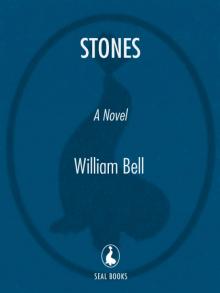 Stones
Stones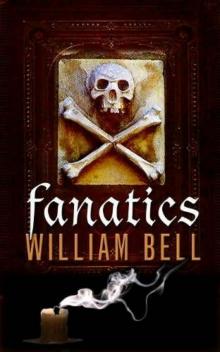 Fanatics
Fanatics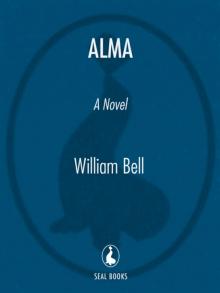 Alma
Alma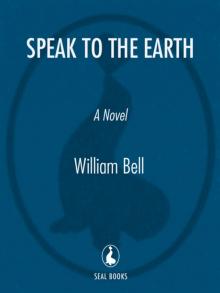 Speak to the Earth
Speak to the Earth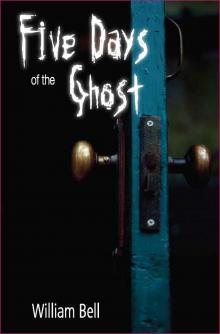 Five Days of the Ghost
Five Days of the Ghost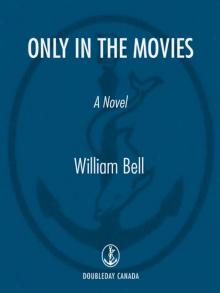 Only in the Movies
Only in the Movies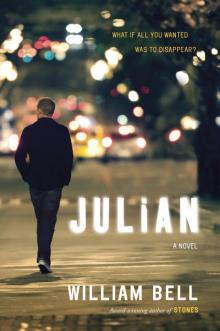 Julian
Julian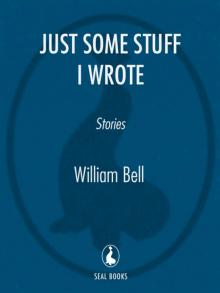 Just Some Stuff I Wrote
Just Some Stuff I Wrote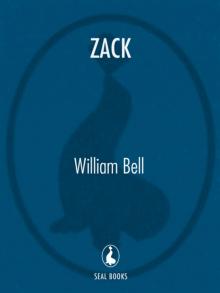 Zack
Zack Forbidden City
Forbidden City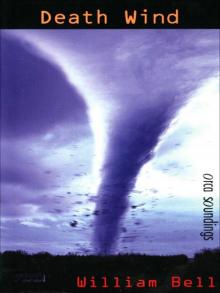 Death Wind
Death Wind No Signature
No Signature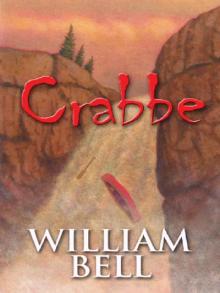 Crabbe
Crabbe